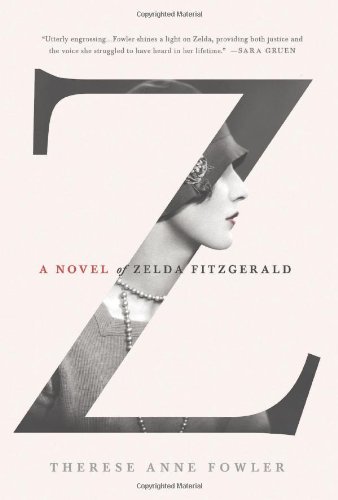Z: A Novel of Zelda Fitzgerald
An intimate portrait of a flamboyantly public marriage, Z imagines Zelda Fitzgerald’s voice in this exhilarating account of a life lived in decadent, full color. During the Jazz Age, Zelda and F. Scott Fitzgerald personified the era’s reckless abandon. Their decades-long love story played out in New York and Europe as they attended parties, spent wads of cash, and fought their inner demons and each other as they struggled to create art of their own. Their union derailed into excessive drinking (his), mental illness (hers), and mutual accusations of thwarted ambition. It’s clear from the beginning that the momentum could never have lasted, but the telling makes for great escapism.
Zelda narrates her own tale, beginning as an uninhibited Alabama teenager and moving through her marriage to an ambitious, as-yet-unknown writer, their years of notoriety, the birth of daughter Scottie, and their final tragic decline. Perhaps Fowler has filed some edges off the real Zelda’s personality to make her more sympathetic, but her daring and confidence still leap from the page.
The characterization avoids stereotypes, and all the name-dropping is done with purpose. Their social circle includes H. L. Mencken, Cole Porter, and Ernest Hemingway, the latter an attention-seeking “extra-manly man” whose complicated relationship with both Fitzgeralds is envisioned brilliantly (and controversially, no doubt). No major segments of their marriage are omitted, but the plot has a constant forward motion that ensures the reading is never dull.
The novel deftly explores the uneasy intersections between literature and real life, with Zelda embodying the brashness and style of Scott’s flapper heroines, and Zelda’s uphill battle for artistic acceptance is convincing and heartfelt. To earn them more money, her published writings were often credited at least partially to him, which she was deeply conflicted about – understandably so. With her engrossing novel about an unconventional heroine, Fowler makes a persuasive case that Zelda deserves to stand in her own spotlight.










